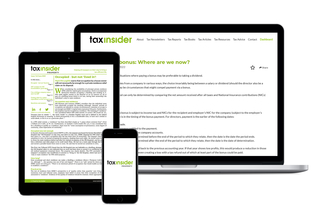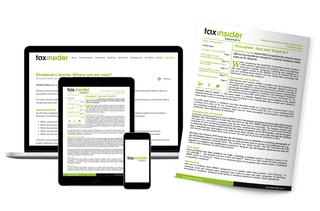New articles published
in February 2026
-
The Renters’ Rights Act 2025: Tax Implications for Landlords
The Renters’ Rights Act 2025 (RRA 2025) marks one of the most significant reforms to the private rented sector in England and Wales (not Scotland, which has its own rules) since 2015, when George Osborne implemented the restriction of mortgage interest relief for individual landlords.
Whilst much of the commentary on the RRA has focused on tenant protections (e.g., Section 21 no-fault evictions), the legislation also introduces additional regulation costs for the landlord, who may decide that those costs outweigh what little profit is being achieved and head for the exit.
Jennifer Adams examines the potential tax implications of the Renters’ Rights Act 2025 on landlords and summarises the key tax issues should the landlord decide to sell their properties.
-
MTD for Income Tax: Key Developments Ahead of April 2026
After numerous false starts, making tax digital (MTD) for income tax self-assessment (MTD ITSA) is scheduled to take effect from 6 April 2026 for the first wave of taxpayers. The changes are sweeping, and arguably represent the largest imposition on the taxpayer since the introduction of self-assessment itself in the 1990s.
While the most tangible change will likely be the requirement to make quarterly online returns of income, etc., MTD goes much deeper than this; HMRC effectively gets to say how taxpayers keep their records, now in a mandatory digital format, particularly given the vast majority of them will buy and use commercial software for MTD, that has been drawn up to a template that HMRC controls.
Lee Sharpe looks at late developments, clarifications and implications as the making tax digital for self-assessment deadline looms for the first cohort of taxpayers.
-
Rental Income: Have You Notified HMRC?
Individuals can begin receiving rental income for a variety of reasons. For example, they might decide to become a ‘buy-to-let’ property investor; or they may become an ‘involuntary landlord’ where a deceased relative leaves an investment property in their will.
Mark McLaughlin warns that taxpayers are responsible for notifying rental income to HMRC in a timely manner to avoid the risk of penalties for failure to notify chargeability to tax.
-
Autumn Budget 2025: Tax Changes for Landlords
Landlords are seemingly an easy target when it comes to tax rises, and the Autumn Budget 2025 was no exception. This time, the Chancellor announced the introduction of new property tax rates and rises in the dividend tax rates.
In recent years, unincorporated landlords have suffered from the restriction of relief for interest and finance costs and, for a while, higher rates of capital gains tax on residential property gains. The latest changes come hard on the heels of the end of the favourable tax regime for furnished holiday lettings. The Renters Rights Act 2025 will deal further blows, reducing landlords’ rights and hitting them with increased obligations and higher costs. This article looks at what the changes announced in Autumn Budget 2025 will mean for landlords.
Sarah Bradford explains how landlords are affected by tax changes announced in Autumn Budget 2025.
-
Q&As with Arthur Weller
Some of our most popular articles
-
Joint property letting vs partnerships
Property partnerships seem popular these days – typically, as a stepping-stone to greater things. Regular readers will know that I have long criticised HMRC’s published position on whether a property partnership exists, as distinct from simply co-owned property. My argument is that HMRC has drawn up its guidance to set an unreasonably high threshold to ‘make the grade’ as a partnership.
Lee Sharpe looks at whether a joint property letting activity amounts to a partnership, and why it is relevant to landlords.
-
Main residence relief and multiple residences
Most people do not expect to have to pay capital gains tax (CGT) when they sell their home. Private residence relief (also known as main residence relief or principal private residence relief) normally applies in full when the property has been the taxpayer’s only or main residence throughout the whole period for which they have owned it.
Sarah Bradford outlines the concept of a ‘main’ residence for capital gains tax purposes.
-
That old boiler: Repairs or improvement?
The government (HMRC) has become increasingly worried about the volume of small and medium-sized enterprise research and development (R&D) tax credit payments where a company claims to have undertaken eligible R&D activity (and it is important to keep in mind that only certain types of R&D may qualify – there are a lot of criteria).
Lee Sharpe looks at tax aspects of modernising property and the risk of disallowance as improvements that constitute capital expenditure, losing income tax relief in the property business.
-
Investing in commercial property: Tax implications
Whether to buy commercial or residential property depends on various factors, not least the more beneficial tax system for commercial lets and whether an individual or a company is purchasing the property. The government wishes to encourage commercial lets and therefore permits a more generous tax regime than residential lettings.
Jennifer Adams considers some important tax benefits of investing in commercial property.
-
Q&As with Arthur Weller
Subscription Benefits
We asked our subscribers what they love about Property Tax Insider.
These are the top 7 reasons that they gave us:
Monthly Newsletter
Property Tax Insider…





